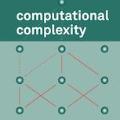Inventory management in warehouses directly affects profits made by manufacturers. Particularly, large manufacturers produce a very large variety of products that are handled by a significantly large number of retailers. In such a case, the computational complexity of classical inventory management algorithms is inordinately large. In recent years, learning-based approaches have become popular for addressing such problems. However, previous studies have not been managed systems where both the number of products and retailers are large. This study proposes a reinforcement learning-based warehouse inventory management algorithm that can be used for supply chain systems where both the number of products and retailers are large. To solve the computational problem of handling large systems, we provide a means of approximate simulation of the system in the training phase. Our experiments on both real and artificial data demonstrate that our algorithm with approximated simulation can successfully handle large supply chain networks.
翻译:仓库库存管理直接影响到制造商的利润,特别是大型制造商生产由大量零售商处理的种类繁多的产品。在这种情况下,古典库存管理算法的计算复杂性非常之大。近年来,以学习为基础的方法在解决这些问题方面已变得很普遍。然而,以前的研究尚未建立产品数量和零售商数量都庞大的管理系统。本研究提出了一种基于学习的强化仓库库存管理算法,可用于供应链系统,而供应链系统的产品数量和零售商数量都很大。为了解决处理大型系统的计算问题,我们提供了一种在培训阶段对系统进行大致模拟的手段。我们对真实和人工数据的实验表明,我们模拟的算法能够成功地处理大型供应链网络。



